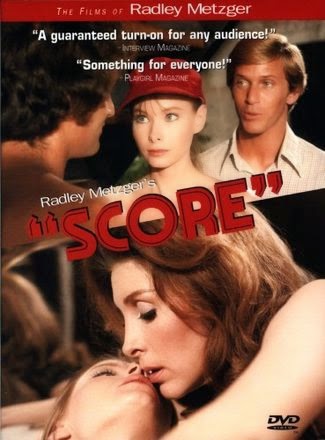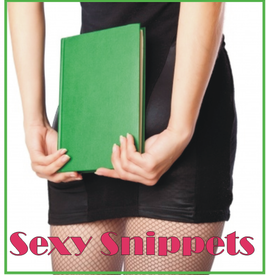By Spencer Dryden (Guest Blogger)
Why
don’t more men write erotic romance?
I’m
very new to writing fiction. I’m also an old guy. I just turned 64. I
was 16 when Paul McCartney immortalized that age. At 16 I though 64
was much older and decrepit than it has turned out to be.
Nevertheless I am past the peak of my sexual prime and clearly headed
into the sunset.
One
immediate benefit of writing erotica is that I can make love to any
woman I want. In fact, she craves my sexual attention and my wife
could care less. How good is that? As my awareness of the field of
writing has expanded I have wondered why more men don’t write
erotica, or more specifically M/F vanilla erotic romance. It’s a
blast.
It’s
fair to say, since I’m saying it about myself, that I have been
subject to female allure since the first time I felt that stirring in
my pants when I saw pictures of naked women. Yes, I am pussy
whipped. I love women. I love female sexuality. I have been easily led by
the nose (actually by my cock) anywhere any woman has wanted me to
go. I have made disastrous choices because of it.
Luckily,
I found a woman who has been my wife and soul mate for 25 years, but
she too, can get me to do anything she wants. She’s so goddamn smart.
She knows that the secret to moving men is that we crave to have two
things stroked, our egos and our cocks. If she wants anything, all
she has to do is make me think its my idea, praise me for it and then
reward me. It’s like leading a lamb to the slaughter.
Guys,
does your wife brag about you? Mine brags about me—not for the
tremendous screaming orgasm I bring her (right)— it’s the handyman
work I do around the house. When my wife is bragging about me to friends, in guy code she is saying, ‘my husband’s dick is bigger than
yours’.
So
by now I’m sure your asking, ‘what does all this nonsense have to do
with men writing M/F erotica’. The answer is: EVERYTHING.
To
answer my own question about men writing M/F erotica, my thesis is:
It’s not that men don’t have sexual fantasies or that men aren’t good
writers, it’s that the standard, acceptable expression of erotica is
passed thought the lens of the female experience. So yes, guys, we
are subject to a kind of deeply rooted discrimination. INCOMING!
When
I say deeply rooted, I am talking about all the way back to the dawn
of mankind. It was sex that brought us out of the trees. Something
happened back when we were two feet tall that caused an explosion in
our species almost like a virus. I believe that explosion was
triggered by several changes that happened relatively quickly but
proved very successful. One of the most important changes was the shift
from seasonal estrus to monthly fertility—females became fertile and sexually
available on a year round basis. The other was the anterior migration
of the vagina—males and females could face each other during
copulation.
Prior
to the change in the fertility cycle, a female signaled availability
by broadcasting pheromones. It drove all the males crazy, we wailed
and beat on each other, bringing gifts, building stuff and generally
making fools of ourselves for the chance of a little nookie. The big
alpha male swept us all away and banged everyone. The pheromones died
down and we all went back to living separate lives, eating grapes and
picking ticks off each other. That strategy is still working
successfully for the other primates we left behind.
Somewhere
along the way females got the idea that if they were sexually
available all year long, males would be constantly seeking their
favor, bringing them stuff, building shit and so on. Then to break
the alpha male thing, they realized that if they could face their
partner, visual cues could replace pheromones and allow them to have
more choice in the selection of mates. The great migration of the
vagina began.
The
strategy was ingenious. Guys had to keep bringing more and better
stuff in order to get laid, but we all had a chance if we could just
bring the right stuff. The phenomenon we call civilization was born.
It’s why I am pussy whipped. I keep bringing stuff and building stuff
in order to get laid. (You didn’t think I was going to get back to
that, did you?)
The
only place females fucked up was in selecting big hunky guys (think
Romance) as mates, which promoted sexual dimorphism—males much
larger and stronger than females. They should have selected more of
us regular guys. The slaves they bred became their physical masters.
When
the language thing came around, women proved much more facile with
this tool. Guys stuck to expressing themselves with clubs and spears.
Moreover since females harbored life, they had to develop much more
internal sensory awareness than men who merely needed to sense when to
eat, shit and fuck.
Then
there was writing. At first we wouldn’t let females learn this
communication tool. When they did, they focused on internal sensory
experience. Eventually, completely frustrated by the lack of
emotional bonds with their mates, they invented Romance Novels as a
means of escape from their dreary enslaved lives. They specified that
the standard story trope must be one that focuses on internal sensory
and emotional experiences and hold the more physical, visual male
fantasy to be an invalid expression.
And
that’s why we don’t have more men writing erotic romance.
About Spencer Dryden
Some men are born great, others strive
for greatness; still others have greatness thrust upon them. Spencer
Dryden is none of these men. In fact, he’s so unimpressive he leaves no
footprints on newly fallen snow. He was trained in fiction writing on
the job with the many sales reports he produced for his managers,
winning the coveted ‘Keep Your Job Contest’ three years running. His
expense reports are still considered masterpieces of forgery by the
bankruptcy trustee of his former employer. He lives an unremarkable life
in a suburb of a northern city. His friends and family would drop dead
in horror if they knew of his secret life as a writer of erotica. He
hates the family cat, but still loves to pet his wife.
http://www.fictionbyspencer.com






